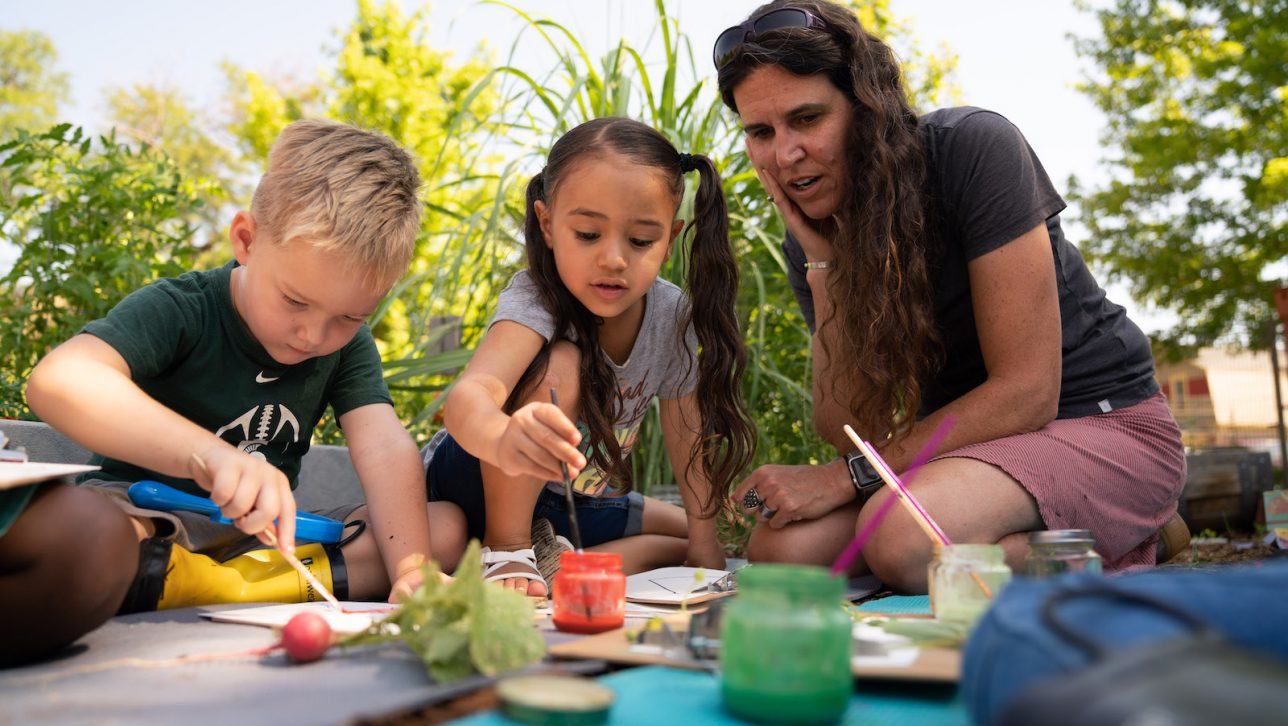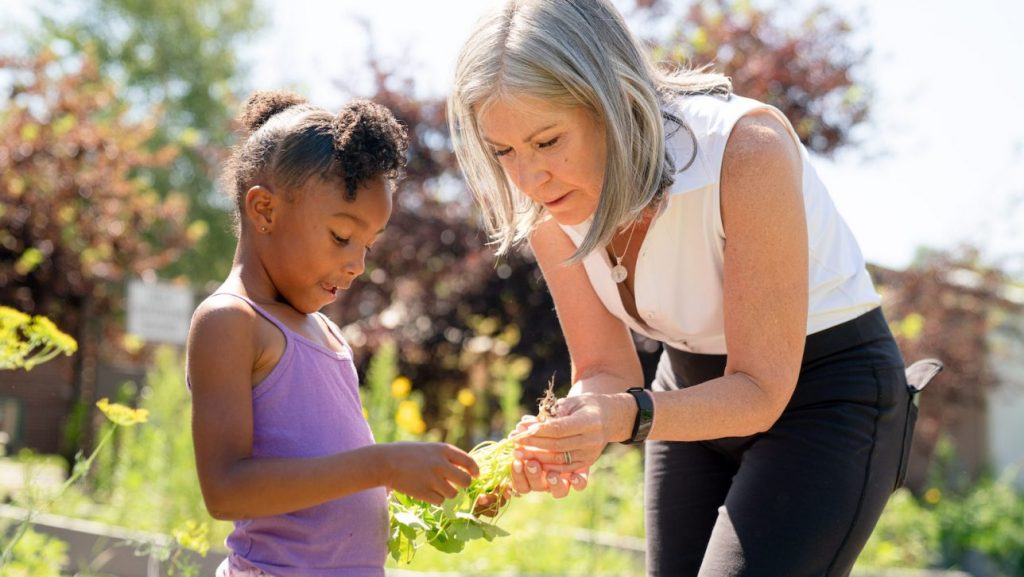
Jenna Augustine (7th Cohort) and Nicole Rudman (8th Cohort) with Lori Ryan (BECLP Faculty)
As Buell Early Childhood Leaders, we keep our learning from the program alive as we co-evolve our coursework and capstone projects into a community-engaged teaching and research experience in the urban gardens of Denver. As we articulated our BECLP credits to masters and doctoral programs of study at CU Denver’s School of Education and Human Development, we designed a summer experiential course that offers us a unique opportunity for shared leading, research and learning alongside faculty, colleagues and community partners. Budding Early Experiences (BEEs) in the Garden supports us in our joyful learning in the field, as we continue to find purpose and most importantly a community of co-learners–children and professionals–who generously contribute their unique selves and experiences to our interactions and to our learning exchanges.
After the first three summers of BEEs at the Growhaus, this past summer the three of us had the pleasure of co-leading the fourth annual course in the vibrant Discovery Gardens at Clayton Early Learning recently featured in CU Denver Today.
Connecting with a community partner whose mission aligns with Jenna’s passion offers us a context to do this important work. Clayton Early Learning’s food justice mission emerged in response to several factors: the importance of nourishing the bodies of young children as essential for healthy growth and brain development; the challenge that many families of young children enrolled in the school face to daily put high-quality food on the table; and the Clayton neighborhood itself located in what’s known as a food desert, a term that refers to a lack of grocery stores in the area and, therefore, a scarcity of affordable and nutritious food.
Inspired by Nicole’s doctoral research on professional learning communities, we framed Summer 2019 with questions focused on learning and partnerships among children and adults. We asked, What are the many ways that children and adults engage and learn outdoors in the Discovery Garden? How is learning co-constructed by adults and children? How does learning alongside children inform adult learning with one another?
The following sample of educators’ weekly reflections speak to the power of the trust, vulnerability and reciprocal learning cultivated among children, adults and the garden itself.
Out in the garden, there is a different pace, a different allowance for taking our time. This is ‘Slow Teaching’. While we are emboldened by trust and allowing ourselves to be explorers in the garden alongside the children, we are also intentionally slowing down. We make time to wonder and time to explore. This invites the children to have their own interpretations of what they experience. They are eager to share with us.
The garden as a place brings us peace, purpose, and centers us in an understanding of the symbiotic relationships within which we all live. Our garden is full of fun and interesting things to try, test, and explore. It is an exciting environment to play in, and offers new and unique challenges.
The garden offers such a magical place to be together and see what unfolds. Unlike the classroom environment, the garden creates its own provocations of thought and activity. As the garden changes, it awakens in me an awareness that we are co-learners with the children. Being in the garden brought new life to that role for me.

As CU Denver’s SEHD and BECLP faculty, Lori remains committed to partnering with Jenna, Nicole and community educators each summer as we extend our experiences from the one before. We continue to learn more about how the garden nurtures in both young children and adults authentic relationships and meaningful connections that lead to personal happiness and a sense of well-being. When present in the garden, children and adults explore their innate curiosity, dream and imagine possibilities, and contemplate and express ideas about their relationship to the earth. In the process of learning to love and respect a garden, children and adults build a community and learn to love and respect each other.
